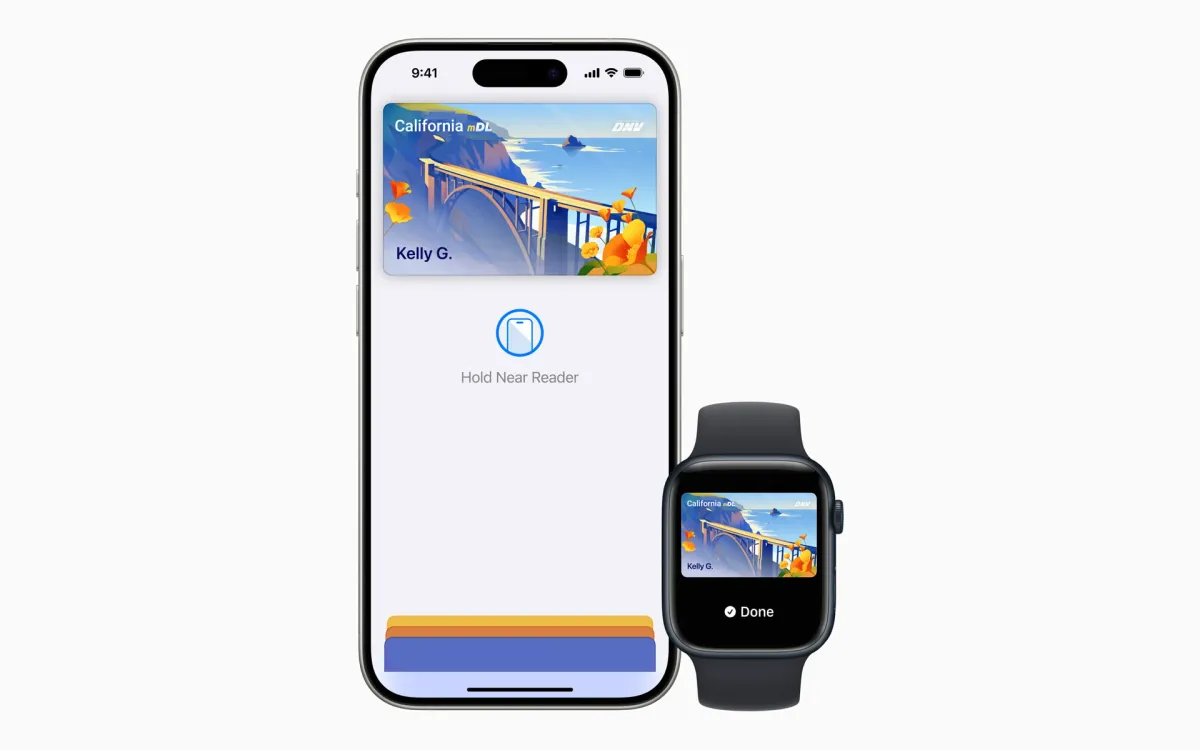
Apple this week announced a partnership with the state of California to introduce digital driver's licenses and state identification cards to the Apple Wallet app. This innovative move, set to roll out in the coming months, will allow Californians to securely store and present their official identification using their iPhone or Apple Watch. The initiative marks a significant step forward in the digitization of government-issued identification and promises to streamline identity verification processes across various sectors.
According to Jennifer Bailey, Apple's vice president of Apple Pay and Apple Wallet, this development will provide California residents with an easy, secure, and private way to present their driver's license and state ID in person and in apps using Apple Wallet. The integration of California driver's licenses and state IDs into Apple Wallet will offer a seamless method of presenting identification, whether for travel, age verification, or identity confirmation at businesses.
This development comes as part of a broader national trend, with California joining five other states—Arizona, Maryland, Colorado, Georgia, and Ohio—that have already implemented similar digital ID programs in partnership with Apple. As Apple's home state, California's adoption of this technology is particularly significant and could serve as a catalyst for nationwide implementation.
To use this feature, Californians will need to add their driver's license or state ID to the Wallet app on their iPhone. The process involves scanning the front and back of the physical ID, confirming the user's identity through a series of steps, and sending the information to the state for approval. Once approved, the digital ID will be securely stored in the Apple Wallet, ready for use at participating locations.
One of the primary advantages of the digital ID system is its enhanced security features. When adding an ID to Apple Wallet, the state-issuing authority receives only the information necessary to approve or deny the addition of the license or ID. Furthermore, when presenting a digital ID, only the specific information required for the transaction is shared, and users must authorize the sharing using Face ID or Touch ID. This process ensures that users maintain control over their personal information and reduces the risk of unauthorized access or identity theft.
The implementation of digital IDs is expected to have far-reaching implications for various sectors. At the forefront of adoption are airports, where the Transportation Security Administration (TSA) has been working to accept digital IDs at select security checkpoints. Initially, Californians will be able to use their digital IDs at select TSA security checkpoints, potentially reducing wait times and streamlining the security process for travelers.
Privacy concerns have been at the forefront of discussions surrounding digital identification systems. To address these concerns, Apple has implemented several protective measures. The company states that a user's ID information is encrypted and stored only on their device, and neither Apple nor the state-issuing authority can track when or where a user presents their digital ID. Additionally, if a device is lost or stolen, users can utilize the Find My app to lock their device or erase it remotely, further safeguarding their personal information.
It's important to note that while the digital ID program represents a significant technological advancement, it does not entirely replace physical identification cards. Users should continue to carry their physical driver's licenses or state-issued ID cards, as not all businesses or government agencies may be equipped to accept digital IDs immediately.
The introduction of digital driver's licenses and state IDs in California represents a significant milestone in the evolution of personal identification. As the most populous state in the U.S. and home to Silicon Valley, California's adoption of this technology could have far-reaching implications for digital identity verification across the country.
As Apple and California prepare to roll out this technology, questions remain about widespread adoption and potential challenges. How quickly will businesses and government agencies adapt to accept digital IDs? What measures will be in place to ensure equitable access for all Californians, including those without smartphones or older devices? These are issues that Apple and the state of California will need to address as the program expands.
The success of this program in California may well determine the future of digital identification across the United States and beyond, potentially revolutionizing how people interact with businesses, government agencies, and various services requiring identity verification.
Key facts
Announced by Apple on August 15, 2024
Will allow Californians to add driver's licenses and state IDs to Apple Wallet
Joins five other states in offering digital IDs in Apple Wallet
Will be accepted at select TSA security checkpoints
Emphasizes privacy and security through encryption and user control
Requires user authorization via Face ID or Touch ID for information sharing
Does not replace physical ID cards at this time
Encrypted ID information stored only on the user's device
Neither Apple nor the state can track when or where digital IDs are presented
Launch date for the feature in California not specified in the announcement

